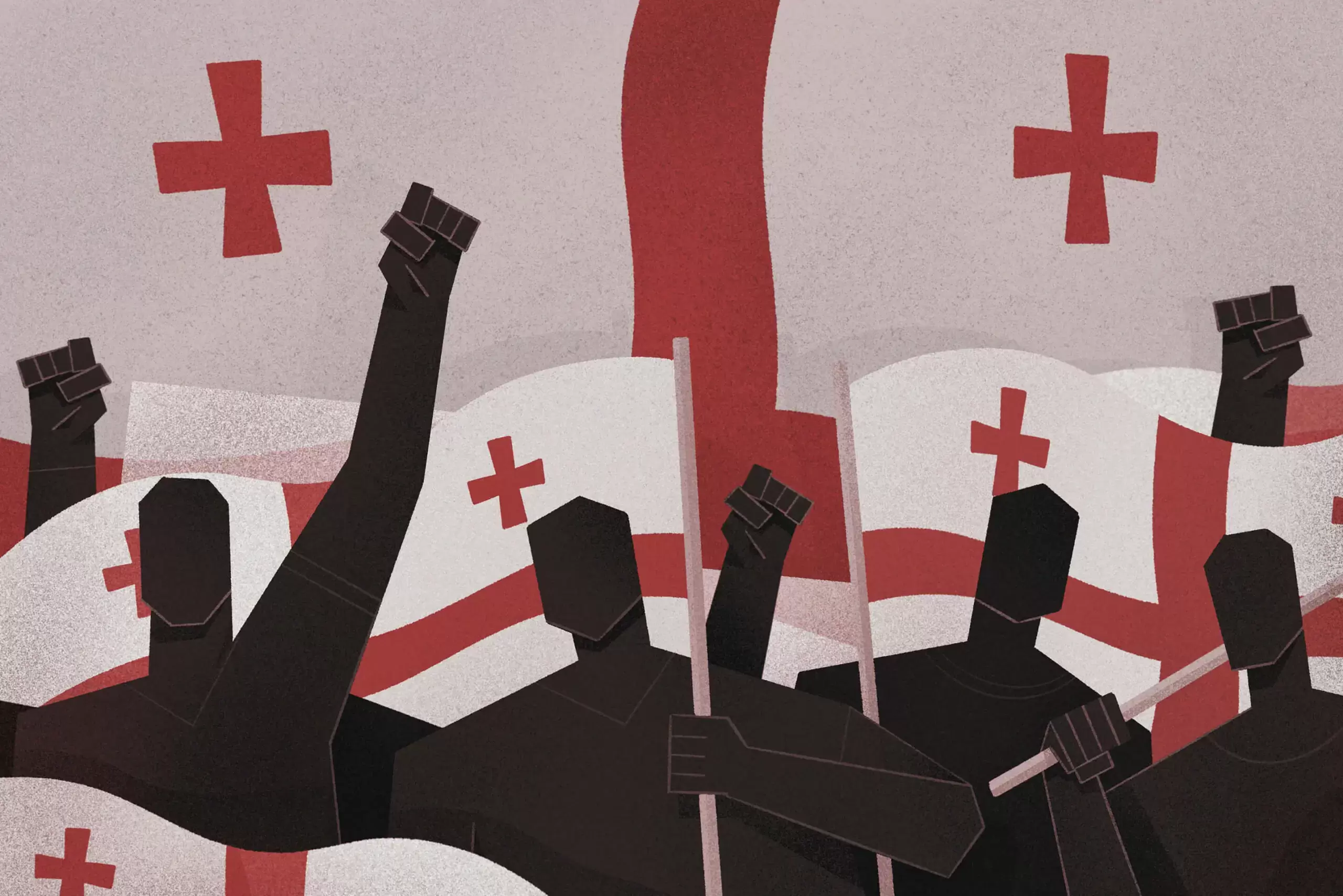Georgian Dream: Pseudo-Liberals Against Pseudo-Liberalism

Date: 5 November 2024
The Georgian Elections Observatory (GEO) is a short-term initiative focused on fact-checking pre-election narratives leading up to the crucial parliamentary elections on October 26. What sets this project apart from traditional fact-checking platforms is that it doesn't just address specific claims but examines entire narratives, offering political analysis alongside fact-checking and media analysis. This project is powered by the Fojo Swedish Media Institute in partnership with Investigative Media Lab (IML) and the UG Security, Politicy, & Nationalism Research Center (UGSPN).
DISCLAIMER: The views expressed in these stories do not necessarily reflect those of the listed organizations.
In recent years, Georgian Dream has often used the term “pseudo-liberalism” when criticizing the opposition, civil society, and Western partners.
On October 22, Prime Minister Irakli Kobakhidze claimed that “as for pseudo-liberal propaganda, this is the most serious problem on a global scale.” He made a similar statement in September:
The entire collective “United National Movement,” which includes the relevant parties, relevant NGOs, and relevant media, is directly involved in spreading pseudo-liberal ideology. One of the main aspects of this ideology is LGBT propaganda.… They constantly attack the Orthodox Church. One of their main objectives is to damage the reputation of the Church, which they cannot achieve, though they continue to address this topic. These parties are directly opposed to traditional values in Georgia. Therefore, it’s not just that they overlook something: they directly oppose traditional values, the values in our country.
Bidzina Ivanishvili also spoke about pseudo-liberalism on August 25: “The agents here enthusiastically defend and spread pseudo-liberal ideology, whose goal is to destroy all traditional values, completely deprive people of their dignity and morality, and create a mass of the lowest-rank slaves with a single psychology.”
What Is (Pseudo) Liberalism?
Liberalism, the foundation of modern Western civilization, is a political ideology centered on liberty, human rights, equality before the law, private property, and accountable government. According to members of Georgian Dream, pseudo-liberalism includes elements such as LGBT+ propaganda, attacks on the Orthodox Church, opposition to traditional values, and efforts to “create a mass of low-ranking individuals with a single psychology.”
(Read more about "LGBT propaganda" narrative here.)
Liberalism places significant importance on human rights and freedoms, with liberal values protecting minority rights and opposing discrimination. Under liberalism, freedom of expression is upheld, the rights of the LGBT+ community are safeguarded, and their integration into society is supported.
Liberalism supports freedom of religion. Accordingly, persecution and discrimination based on a person’s religion are not permitted. At the same time, liberalism promotes diversity and pluralism, allowing different religions and confessions to coexist peacefully in liberal democracies. However, liberalism also upholds the importance of a secular society, where the state and religion are kept separate.
Although liberalism often seeks progress and change—which may involve re-evaluating outdated traditions—it also supports cultural pluralism and respects the unique cultural characteristics and traditions of different societies.
Regarding “creating a mass with a single psychology,” the foundation of liberalism is individual freedom, including freedom of thought and belief. In a liberal system, individual differences are neither persecuted nor subject to forced transformation, while equal rights and the full integration of diverse individuals into society are guaranteed. Transforming individuals into part of a homogeneous mass is not a goal aligned with liberalism; rather, it is a characteristic of fascism.
The prefix “pseudo-” suggests untruthfulness or insincerity within a concept. As such, the term “pseudo-liberalism” is used to describe a political phenomenon that theoretically aligns with liberal values but, in practice, contradicts them. Pseudo-liberals often pursue policies that restrict individual freedom, equality, and the rule of law, even though they may publicly claim to uphold liberal values.
“Pseudo-liberalism” is not commonly used in academic literature and appears more frequently in media and political commentary, though similar concepts exist in political theory, such as illiberalism or illiberal democracy. The term can also serve as an alternative for describing the democratic facade constructed in hybrid and authoritarian regimes. One example of this is modern Hungary, whose Foreign Minister Péter Szijjártó used the term “pseudo-liberalism” in an interview with the Imedi television station.
Representatives of Georgian Dream often speak publicly about human rights, the rule of law, and the core values of liberalism; however, their policies frequently undermine these values. For example, their law on “family values” promotes discrimination against vulnerable groups; their initiative to declare Christianity the state religion violates secular principles and the rights of other religious confessions; and their “transparency of foreign influence” law restricts civil society and dissent. Additionally, the capture of all government branches and regulatory bodies by the ruling party undermines the rule of law and threatens the principle of democratic checks and balances. The policies of Georgian Dream themselves manifest pseudo-liberalism, though they accuse the opposition and civil society of promoting it.
It can therefore be concluded that in authoritarian and hybrid regimes, consolidated powers discredit liberal groups by accusing them of pseudo-liberalism, even where they may sometimes manifest it themselves.
Illustration: illiberalism.org